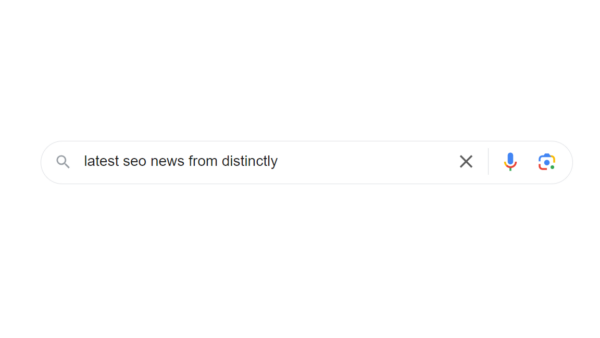How early do people start searching for Christmas related terms?
The last heatwave of the summer has come to an anticlimactic end, the trees are on the turn, and dare I say it, some of us are considering how soon is too soon to put the heating on or phase our favourite jumpers back into rotation.
But no sooner than you’ve put your garden furniture safely away, we start to see a weird phenomenon occurring in the shops and online. Everywhere you turn, businesses suddenly seem to have developed an identity crisis; they can’t decide whether people are still clinging on to any remotely sunny day, embracing autumnal cosyness, planning halloween or (whisper it) even thinking about the C word!
The reality is, this is the strangest period of the year for retail, with customers flitting between all of the above depending on the weather, the content they consume, or just general inclination. Halloween generally isn’t profitable enough to only have it promoted for the week or so that people are actually interested (in the UK anyway). And it’s in such stark contrast in every way to the festive period that follows, that businesses have to be ready to transition pretty quickly.
This is particularly true for physical stores that have to get marketing material and products shipped and set up in plenty of time. But what about online – is there a justification for seeing Christmas being promoted as early as late September/early October? And is it just retail or do other industries start seeing movement earlier than you might think?
Pondering all of this sparked a few thoughts to explore further; how early do people really start searching for Christmas related products and services? Have trends changed at all over time? And how influential were external factors such as covid?
Retail
Looking back over the past twenty years, yearly searches for “christmas gifts” in the UK were actually in decline between 2004 and 2010, before significant year on year increases all the way up to 2017. The absolute peak of interest came (unsurprisingly) in lockdown year 2020,
Source: Google Trends
Interestingly, USA interest in “christmas gifts” was mostly on the up all the way to 2016, but then started a slow decline year on year, not even experiencing a change of direction during 2020:
Source: Google Trends
So there’s definitely been changes in overall trends over the past two decades, but when exactly in the year do people start searching for Christmas related terms?
We analysed some high volume keywords in the UK over the past four years to hopefully answer exactly that:
What the graph essentially shows is that searches for some terms (christmas gifts) really do start as early as September, with the majority accelerating from October.
What we found particularly interesting however was that with the exception of “christmas presents”, “secret santa gifts” and “xmas presents for dad”, all other keywords actually peaked in November, and dropped off in December. This is better visualised grouping all data together:
Now this will be in part due to the fact that the drop off between the first and second half of December is stark (for obvious reasons), and there is still going to be plenty of value to be had from the 1st to the 20th Dec. But we wouldn’t have necessarily assumed that the most value in total search volume terms (intent is another question) is actually to be had in November, and a significant amount overall in October too.
Events & Services
So, we’ve discovered that users start searching for certain Christmas products as early as September and October in reasonable numbers. But what about festive related events and services? How early do people start planning Christmas party venues, delivery slots for shopping or book tickets to a festive light show?
There’s more of a mix here, with family event terms continuing to hold strong in December, whereas party venues and delivery slots have all but disappeared by then, due to the pre-planning involved. “Christmas party venues” actually peaks in September and delivery slots have the fastest decline in search volume between November and December of all the terms we looked at.
How To Use The Data
What started as more of an interest piece for us, actually has some useful takeaways from a marketing point of view.
For example, lots of e-commerce websites focus heavily on Black Friday promotion in November and only allocate marketing budget for Christmas after Cyber Monday. Based on the data, this approach could in fact lead to missing out on a key period of time for Christmas research.
Equally, if you’re planning to promote a venue for the festive period, you could already be too late this year to capitalise on the peak of interest, and need to consider starting as early as August in 2025.
This is obviously just a snapshot of the data available, so we recommend drilling down into the search terms that are most relevant to your business, and tailoring your strategy accordingly.
For more detailed recommendations on trends in your industry, get in contact with us here.



